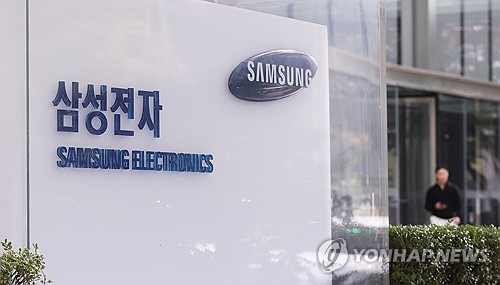
(Seoul=Yonhap Infomax) Young Sook Yoon – The core theme of Samsung Electronics Co., Ltd.’s 2026 annual executive appointments is artificial intelligence (AI), robotics, and semiconductors.
As the pace of industrial paradigm shifts accelerates, Samsung Electronics is signaling a strategic organizational overhaul to strengthen its technological leadership in AI, robotics, and semiconductors, aiming to enhance execution of its future strategies.
Announcing its 2026 executive reshuffle on the 25th, Samsung Electronics stated, “To proactively respond to rapid changes in the industrial paradigm and secure leadership, we have appointed leaders who will drive future technologies in AI, robotics, and semiconductors.”
With intensifying competition for technological dominance in these sectors, the company has placed technical experts from each business division at the forefront.
In the DX (Device eXperience) division, R&D talent recognized for achievements in core areas such as AI platforms, language models, QD, and OLED were promoted.
Vice President Lee Yoon-soo, head of the Data Intelligence Team at Samsung Research, is regarded as an expert in data intelligence, having led the development of personalized data platforms and GPU optimization for AI services. Vice President Lee Sung-jin, head of the Language AI Core Technology Development Group in the MX (Mobile eXperience) division, spearheaded the development of Samsung’s conversational generative AI, strengthening the company’s competitiveness in LLM (large language model)-based services.
Advancements in foldable technology were also a key focus. Executive Director Choi Seung-gi of the Smartphone Development Group 5 in the MX division contributed to the development of the ultra-slim, lightweight Fold7, leveraging his expertise in circuit design to secure next-generation form factor competitiveness.
In the Samsung Research Robot Platform Team, Executive Director Choi Go-eun was promoted for advancing autonomous driving and sensor-based manipulation technologies, underscoring Samsung’s commitment to expanding its robotics business. In the Visual Display (VD) division, Executive Director Kim Dae-young, who led the development of new self-emissive QD and OLED models, was promoted, further strengthening premium display competitiveness.
The DS (Device Solutions, semiconductor) division saw a pronounced shift toward technology-driven appointments.
Notable promotions include Vice President Jang Sil-wan, who led the development of server SSD solutions; Executive Director Yoo Ho-in, who secured yield and mass production for DRAM and HBM4; and Fellow Lee Jae-deok, who spearheaded next-generation V-NAND device development.
Other key promotions include Master Kang Myung-gil, a logic device expert who led new device development, and Master Kim Jae-chun, a semiconductor packaging thermal characteristics specialist who enhanced competitiveness in advanced PKG products.
Alongside a performance-based approach, generational change was a major pillar of this year’s appointments. Numerous executive directors in their 30s and vice presidents in their 40s were promoted, accelerating the shift toward a technology-centric organization.
In the DX division, Executive Director Lee Kang-wook (age 39) of the Samsung Research AI Model Team and Executive Director Kim Chul-min (age 39) of the MX division’s System Performance Group are considered key personnel for next-generation mobile AI and OS competitiveness.
In emerging businesses and new technologies, young leaders have also been placed at the forefront, such as Vice President Kwon Jung-hyun (age 45) of the Samsung Research Robot Intelligence Team, who leads core robotics technology development, and Vice President Kim Moon-soo (age 48) of the VD division’s S/W Productization Development Group, who has secured foundational AI TV technologies and led differentiated service software development.
Samsung Electronics stated, “Regardless of seniority or rank, we have boldly appointed executive directors in their 30s and vice presidents in their 40s who have made significant contributions to management performance and possess growth potential, thereby expanding and strengthening our pool of future management candidates.”
The company also continued its commitment to diversity and inclusion. Female executives were promoted in support and strategy organizations such as ESG (environmental, social, and governance), brand marketing, global procurement, and environment, while global executives, including Vice President Jacob Zhu, who leads China sales, were also included.
Samsung Electronics added, “By continuously appointing talent who deliver results and demonstrate growth potential, regardless of gender or nationality, we have enhanced our global human competitiveness based on diversity and inclusion.”
In the 2026 annual executive appointments, Samsung Electronics promoted a total of 161 individuals: 51 vice presidents, 93 executive directors, 1 fellow, and 16 masters, up 24 from last year’s 137.
With the announcement of these executive appointments, the management lineup is now finalized, and further organizational restructuring and personnel changes are expected to follow.
ysyoon@yna.co.kr
(End)
Copyright © Yonhap Infomax Unauthorized reproduction and redistribution prohibited.

